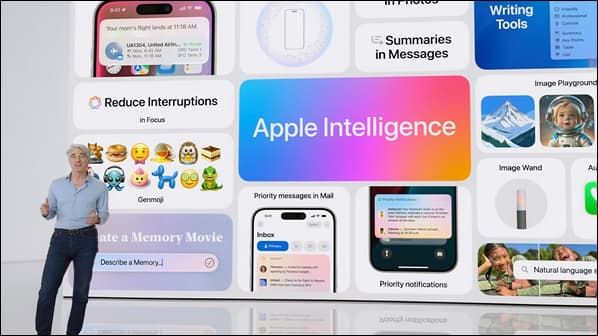In 2025, the rapid advancements of technology are continuing to change the world of learning, as free software increasingly becomes the trusty companions for students striving to achieve academic brilliance. From straightforward organization tools to high-capacity research tools, they are easier to access than ever before, enabling learners with the capacity to succeed in the digital age.
A Brief Guide to Construction Jobs

1. Fundamental Note-Taking and Organization Tools
Notion
In combining task management, shared workspace, and thorough note-taking capabilities, Notion provides a centralized platform for the management of single and shared projects. The plain but customizable interface allows users to create study processes tailored to their requirements, including planning to-do lists, coordinating research papers, and tracking deadlines. Moreover, the AI features of the software—auto-summarization and tone optimization—are enabled for ease of writing and studying and thereby becoming indispensable when dealing with sophisticated academic projects.
Otter.ai
Otter.ai employs advanced voice recognition to capture lectures and conversations in real-time. Automatic keyword extraction and searchable records enable students to escape hours of laboriously summarizing lectures manually. Ideal for multi-lingual student environments, its over 60 language support ensures lectures are accurately transcribed, irrespective of the complexity of the academic environment.
2. High-Performance Research and Study Aids
Google NotebookLM
Google NotebookLM is a robust document analysis system that is presently leading the way in simplifying academic research. Students are able to upload their research work and notes into an interactive system where the AI assists in synthesizing key points, making summaries, and even transforming content into audio podcasts for visually impaired students. The privacy focus of the platform ensures that users’ data uploaded into the platform are safe, thereby making the system popular among students handling sensitive academic data.
Research Rabbit
Research Rabbit transforms literature reviews by visualizing relationships between similar academic papers. It allows students to make citation maps, research co-authorship amongst authors, and receive email alerts for new publications. The interactive site allows for a better understanding of evolving areas of research and simplifies structuring findings for detailed projects.
3. Writing and Editing Tools with AI Assistance
Grammarly
Grammarly promises polished written materials via real-time grammar checking, tone identification, and sentence syntax improvement recommendations. Main features for essay writing appear in the free version and users can navigate through it easily using browser-based access or plug-ins. Placing checks for plagiarism and advanced features belong to the paid version yet the free tools can already meet academic requirements.
ChatGPT
While most users associate ChatGPT with advanced features like brainstorming or creative writing, its ability to craft essay outlines and academic drafts cannot be matched. Such students as struggle with complex essay structures can find respite through this AI tool, which provides clarity and actionable ideas in minutes. Factual correctness, however, needs to be verified when using ChatGPT, especially in essays requiring the newest or most advanced information.
4. Math and Problem-Solving Tools
Photomath
For students who struggle with math, Photomath is a valuable digital companion. Simply scan in a math problem written on paper, and the app not only walks through the solution but also provides full explanations for a better grasp of the concepts involved. From basic algebra to advanced calculus, Photomath encourages students to engage with math with ease and speed.
Wolfram Alpha
Wolfram Alpha elevates computer-based problem-solving to new heights, solving tough math problems, scientific laws, and even economic models. It is different from calculators as it offers interactive graphs, data visualization, and precise solutions, which are essentials for STEM students dealing with tough topics like physics or engineering.
5. Interactive Learning Platforms
Quizlet
Quizlet centralizes the making of flashcards with gamification added, motivating students to learn subjects through quizzes and interactive study sessions. Powered by AI, the site can make test simulations and learning games out of uploaded content. Language learners or those focused on memorization utilize Quizlet specifically effectively, as it visually verifies knowledge retention along with repetition.
Socratic by Google
Users can get step-by-step answers to their questions with the mobile AI learning assistant Socratic regardless of the difficulty level. Socratic sets itself apart through its flexible design approach along with its visual components including diagrams and videos and detailed responses for different ways of learning.


Guess you like
-

A Smarter Way to Surf the Web with ChatGPT Atlas
-

Midsize Pickup Trucks That Deliver Real Towing Muscle
-

Surprising But Effective Tricks to Clean Oil Stains for Good
-

5 Artificial Intelligence Features Already Making Your iPhone Smarter
-

Best Hardware for AAA Gaming Across the Generations
-

What to Mull Over Before Buying an Electric Vehicle in 2025
Trending
-
 1
1Practical Diagnostics That Actually Work Before Your Next Router Purchase
-
 2
2A Bittersweet Return: Syberia Remastered Review
-
 3
3Electric Trucks Falter in the U.S. — The High-Stakes Struggle Behind the Wheels
-
 4
4Amazon’s New AI Tool Translates Kindle E-Books for Self-Published Authors
-
 5
5Stellantis, NVIDIA, Uber and Foxconn Unite on Level 4 Robotaxis
-
 6
6How to Upgrade Weapons and Workbenches in ARC Raiders


